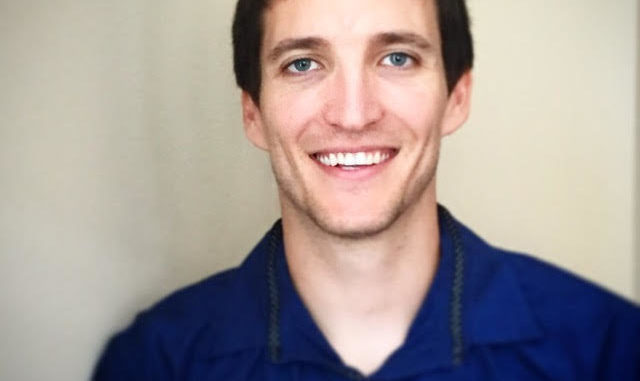
David Atkinson, a Truman State University alumnus, decided to grab at every opportunity to better himself after receiving an exercise science degree. After serving six months of active duty in Afghanistan, he went on to earn master’s degrees at Kansas State University and Harvard University. He is currently enrolled as a law student at Georgetown University. With a drive that can’t quit, he has created a legal education startup called Illustrated Law to make legal knowledge accessible to everyone while studying as a full-time student.
What lessons did Truman teach you that you still act on today?
During my senior year, I was made head cadet, and I let that go to my head. It’s embarrassing to think about now, but I didn’t take other people’s perspectives into account with my actions. I was very overbearing in a way I shouldn’t have been, and it was just very bad leadership. I lost a few close friends that way, and that was a huge teaching moment for me. I really internalized that, and I wrote a book on ROTC that was published, and UNC and Michigan State use it as a textbook. These are the things I learned, the things I wish I knew while in ROTC, but those were mistakes that I went through. I turned a lot of close friends away from me, but as far as Truman goes, that was a huge life lesson for me.
Did you have a professor that motivated you to be successful?
You know, the biggest influence that I had was probably two of my ROTC professors. I don’t know if Lt. Col. Doug Reinsch is still there, but he was a tremendous guy and a fantastic leader. He’s the type of person you look up to who was very intelligent and always encouraged collaboration. There was no backbiting like in high school. There was none of that in the ROTC. I greatly admire that man and Alexander Cook. He is now the head of some department in North Carolina, so I don’t know if anybody is still at Truman.
Could you tell me about your education startup?
I came to law school from Harvard, and I was blown away by the difficulty. Everyone tells you the first year of law school is just an awful, truly miserable experience, and they give you a ton of reading, and then you go to classes where everything is cold call. Guessing answers in front of your peers in a class of 113 makes you feel so stupid. It’s an extremely painful environment to learn, so I asked a buddy of mine who’s always doodling if he would be willing to do illustrations for this new concept I was thinking about. Law school still uses textbooks that use case method, which is just reading opinions written by judges, and this method was developed in the 1870s or so. It’s been virtually unchanged since then, which is mind-blowing because there’s been so much cognitive research about how people best learn, and what are the odds of someone in the 1800s happening to come across the very best method? So we created two books as a prototype just to show professors that there is a better way. We put these things together in two or three months and, to our surprise, they both were No. 1 releases on Amazon. That was in December. This past January we decided to turn it into an actual company and take off with it.
You said said the mission of your company is make legal knowledge accessible to everyone. Why do you think everyone should have access to legal knowledge?
Well, the initial focus is primarily on first-year law students, but the end goal is to reach everyone. For example, not many people can tell you the five rights you have under the First Amendment. For example, if an officer asks you to search your bag, can they do that legally? If you find a watch on the ground in the park, can you keep it? These are very basic legal things, but most people don’t know the answer. There’s something to be said about civic education and about what we value. Right now I think a lot of people treat lawyers like mythical beasts and pay them $400 for something they could know themselves.
Do you have any advice you’d like to share with Truman students?
I would say take your shots. I grew up in rural Missouri, both my parents had a high school education, and I didn’t know what the heck I was going to do in life, so I took every opportunity that life threw at me. I made a best friend who I went to India with. I had $400 in my bank account, and I used all but $70 to pay for my plane ticket. It was a sudden and extreme opportunity. Same with ROTC. I didn’t know what I was going to do with it, but I was able to go to all these different countries, and I cannot express enough how important these opportunities were. Even with law school, I was looking for a job, and I know I’m not the smartest person at Georgetown, but I applied to some of the best places. After my first year, I was one of two people in the nation to intern with LinkedIn, and I would have never gotten it if I didn’t try. I think you have to try everything. Maybe it doesn’t work out, but you’ll never know if you don’t take the shot.
